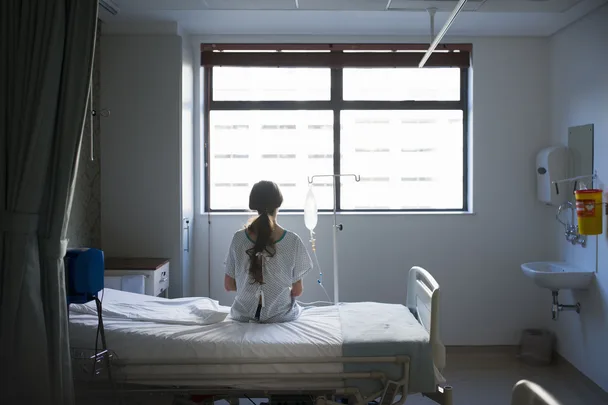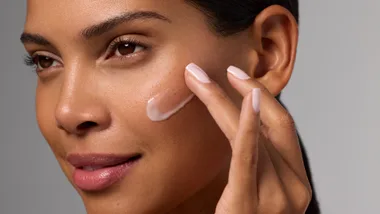For years, women have told stories of not being believed when it comes to healthcare – with many claiming that, despite proving they are in pain, are not given the same treatment as men. That’s why when healthcare worker D Rose posted a video of her impression of a fake doctor to TikTok, the response was…well, not good.
Rose, who describes herself as a memory care worker as well as working in mental health, alcohol and drug rehabilitation, posted the controversial video showing herself in a patient’s gown coughing, before cutting to a scene of herself dressed as a nurse, calling out the patient for ‘faking’.
Unsurprisingly, the video wasn’t received well by patients who have had symptoms dismissed by medical professionals, only to be diagnosed with a serious condition later on.
Lauren Stiles, the founder of Dysautonomia International, a charity that raises funds for research and promotes awareness of disorders of the autonomic nervous system, shared her own experiences to Twitter, writing: “I was told I was faking my symptoms…Turns out, I had an acute onset systemic autoimmune disease.”
It didn’t take long for the hashtag to take off, with thousands taking to the platform to reveal their own stories.
Sadly, the debate of why some doctors don’t trust women when it comes to pain is not new.
A 2000 study published in The New England Journal of Medicine found that women are seven times more likely than men to be misdiagnosed and discharged in the middle of having a heart attack. Research cited in the Journal of Law, Medicine & Ethics in 2001 shows that men are more likely to receive pain relief, whereas women were more likely to be prescribed antidepressants or referred to a mental health service. A systematic review in 2018 by Anke Samulowitz titled “Brave Men” and “Emotional Women”, confirmed that doctors’ perceptions of and interactions with patients were different depending on their gender.
And there’s cause to believe that the multi-million dollar wellness industry of questionable alternative health remedies was built as a result of doctors being dismissive towards women and their health.
Luckily though, the typical trope of women being gaslighted by doctors is turning – with much more aware and conscious patients, with thanks to Twitter movements like #PatientsAreNotFakingIt.










